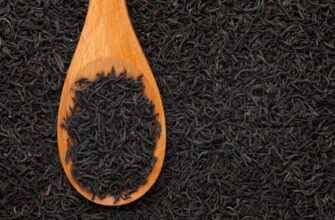Glycine is a non-essential amino acid that is found naturally in the body. It plays a key role in protein synthesis and is involved in several important physiological processes. While glycine is not considered an essential amino acid, it has been shown to have several potential health benefits, particularly for athletes. Here are the top 10 ways that glycine can boost your athletic performance:
1. Improves muscle growth and recovery
Glycine has been shown to stimulate muscle growth by increasing the production of creatine, a molecule that helps to provide energy to muscles during exercise. It also helps to reduce muscle damage and soreness, which can improve recovery time between workouts.
2. Increases energy production
Glycine is involved in the production of ATP, the primary energy source for cells. By increasing ATP production, glycine can help to improve energy levels and reduce fatigue during exercise.
3. Enhances endurance
Glycine has been shown to improve endurance by increasing the production of carnosine, a molecule that helps to buffer lactic acid in the muscles. This can help to delay fatigue and improve performance during high-intensity exercise.
4. Supports immune function
Intense exercise can suppress the immune system, leaving athletes more susceptible to infections and illness. Glycine has been shown to support immune function and reduce the risk of infection in athletes.
5. Reduces inflammation
Inflammation is a natural response to exercise-induced muscle damage, but chronic inflammation can impair recovery and lead to injury. Glycine has anti-inflammatory properties that can help to reduce inflammation and promote healing.
6. Enhances sleep quality
Rest and recovery are critical for athletic performance, and glycine has been shown to improve sleep quality by increasing serotonin levels in the brain. Better sleep can improve cognitive function, reduce fatigue, and enhance overall athletic performance.
7. Supports cardiovascular health
Glycine has been shown to improve cardiovascular health by reducing blood pressure, improving circulation, and reducing the risk of heart disease. This can help athletes to perform at a higher level and reduce the risk of injury or illness.
8. Improves cognitive function
Glycine is involved in several physiological processes that support cognitive function, including neurotransmitter synthesis and regulation of brain activity. By improving cognitive function, glycine can help athletes to stay focused and perform at a higher level.
9. Enhances joint health
Athletes are at a higher risk for joint injuries due to the high-impact nature of many sports. Glycine has been shown to improve joint health by reducing inflammation and promoting the production of collagen, a key component of healthy joints.
10. Reduces stress and anxiety
Intense training and competition can be stressful, which can impair athletic performance. Glycine has been shown to have anti-anxiety and stress-reducing properties that can help athletes to stay calm and focused during competition.
In conclusion, glycine is a powerful amino acid that can provide several potential benefits for athletes. By improving muscle growth and recovery, enhancing energy production and endurance, supporting immune function, reducing inflammation, improving sleep quality, supporting cardiovascular and joint health, improving cognitive function, and reducing stress and anxiety, glycine can help athletes to perform at a higher level and reduce the risk of injury or illness.











